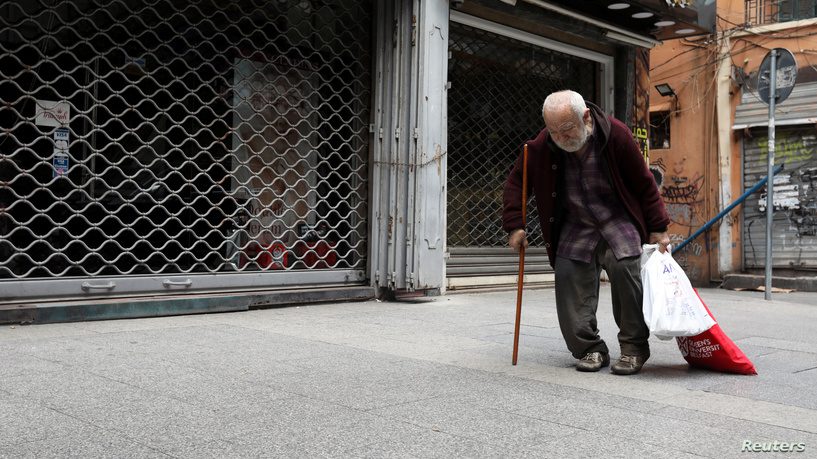Just as Lebanon was breathing a sigh of relief, the government announced a four-day shutdown in response to a surge in coronavirus infections. The decision threw the nation’s struggling population further into a state of economic uncertainty or, to better describe it, left them hanging out to dry.
Whereas in the West –as I haven’t yet given up on drawing up comparisons between the two despite major and inherent differences– they lock you up while government institutions simultaneously work to offset the impact of that shutdown on businesses and family income, social ties and mental health as well.
Aid packages that have been and still being announced are worth billions of dollars. They are being injected into national economies in parallel to the imposition of curfews and shutdowns. Italy, which saw the third highest number of deaths behind the US and the UK country, is kick-starting its economy, whereas a country the the size of Lebanon is struggling with containing the virus and had to put the whole nation under complete lockdown after failing to contain the outbreak following the arrival of a few planes carrying expats.
Governments in developed countries step in with different methods to lessen the impact of an economic and public health crisis such as the one we are experiencing today. Without the same financial capacity and resources, Lebanon can neither follow nor afford a similar trajectory. The question then becomes, why would Lebanon follow the same regulations that are being imposed abroad?
If Lebanon is unable to support local businesses in the form of business loans or financial aid schemes, let alone pay unemployment benefits for all those who were laid off as a result of the outbreak, then what is the government’s back up plan of imposing a complete shutdown? A phased reopening was due to take place before the arrival of expatriates stranded abroad. While the government is lauded for its efforts to bring them back, their action plan lacked follow-up procedures to make sure that everyone on the plane was being isolated for as long as necessary to avoid another wave of COVID-19 infections.
It comes as no surprise that exactly the opposite happened. While the government is not to blame for the recklessness of some of the arrivals, it is nevertheless shameful that its intervention lacked the precautionary measures to enforce a quarantine for everyone on board those planes.
Just as it is keeping a vigilant eye on its citizens by imposing fines on those breaking curfew measures and making sure that everyone was abiding by the public health rules and regulations, it could have also fulfilled its mission of bringing stranded citizens back home using a plan that doesn’t endanger those already at home and doesn’t throw the economy into further disarray with an extra four-day shutdown.
Countries around the world are talking about a return to normalcy, that even with strong economies, they cannot afford to remain in lockdown waiting for a virus to be discovered. In Lebanon, we have an advantage and a lead on other countries. Despite being close to an economic collapse, if not already in one, the country has a significantly young population. The panic we have seen in the West is partly due to an aging population.
A lot of specifics pertaining to Lebanon –not only economics, but also demographics– are often overlooked when following in the footsteps of the rest of the world. Policy-making in the West is based upon extensive research and a thorough understanding of its political and socio-economic specificities. It is therefore either a sign of ignorance or weakness that in our part of the world, we are unable to devise our own policies that fit our own narrative.
Copying public policies designed for the West and forcing them to fit into our own context exposes our lack of expertise, skills and innovation, in a nation that is nothing short of educated, skilled and experienced young men and women from all walks of life.
Even if we were to abide by the policy-making of the West, we can see variables within the same country, across various states and among different regions. Power is decentralized and does not follow the traditional top-down approach of planning and execution.
As for Lebanon, government and public health officials are unable to contain an outbreak in a nation of less than five million with an area 29 times less than the area size of Italy and that indicates serious trouble. Officials are scurrying to present a specific and clear road map of what the next steps are going to look like as they scramble between a national currency in free fall and skyrocketing inflation, amid “talks” for a bailout from the IMF.
Through all that uncertainty, the government is still shy to talk about kick-starting the economy, perhaps because deep down –in the hallways of power– they certainly know that there’s nothing left to be kicked anyway.


